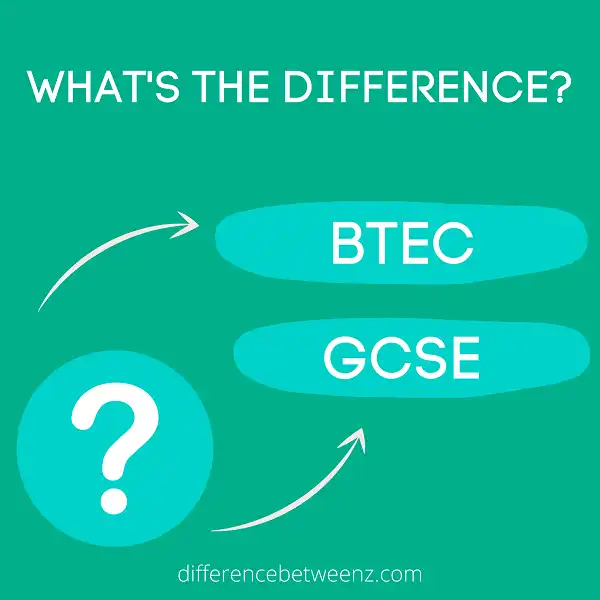So you’ve decided that you want to study a particular career, but you’re not sure which route is best for you? You may be wondering what the difference between BTEC and GCSE qualifications are. In this blog post, we will outline the key differences between these two types of qualification. Keep reading to find out more!
What is BTEC?
BTEC (Business and Technology Education Council) is a BTEC vocational qualification that is taken in both the UK and internationally. BTECs are work-related qualifications, designed to provide students with the skills and knowledge needed for a specific job or career. There are BTECs available at four different levels, from entry level to higher education. BTECs are usually taken as part of a full-time study programme, but they can also be taken on a part-time or distance learning basis. BTECs are assessed by a combination of coursework and examinations, and successful students will be awarded a BTEC certificate.
What is GCSE?
GCSE is an examination taken by students in the United Kingdom in order to obtain academic qualifications. GCSE stands for General Certificate of Secondary Education. GCSE examinations are taken by students aged between 14 and 16 years old. The GCSE curriculum is divided into two parts: core subjects and optional subjects. Core subjects include English, mathematics, and science. Optional subjects include art, history, and geography. GCSE examinations are usually taken at the end of Year 11. The GCSE grading system consists of nine grades: A*, A, B, C, D, E, F, G, and U. A* is the highest grade and U is the lowest grade. GCSE examinations are used to determine whether a student can progress to further education, such as A-Levels or university.
Difference between BTEC and GCSE
BTEC and GCSE are both types of qualifications that students can study for in the UK. Both qualifications are nationally recognised and are widely accepted by employers. BTEC qualifications are vocational, meaning that they are designed to prepare students for a specific career. They are typically taken over a two-year period and involve completing practical projects and assignments, as well as exams. GCSE qualifications, on the other hand, are academic and cover a wide range of subject areas. They are generally taken over a two-year period and involve taking exams at the end of each year. Although BTEC and GCSE qualifications are both widely accepted, BTEC qualifications may be more suited to students who have a clear idea of the career they would like to pursue.
Conclusion
The BTEC and GCSE qualifications both have their own benefits. It is important for students to understand the difference between the two before making a decision on which course to take. If you are still unsure, speak with your guidance counselor or visit the website of the awarding body to learn more about each qualification.


